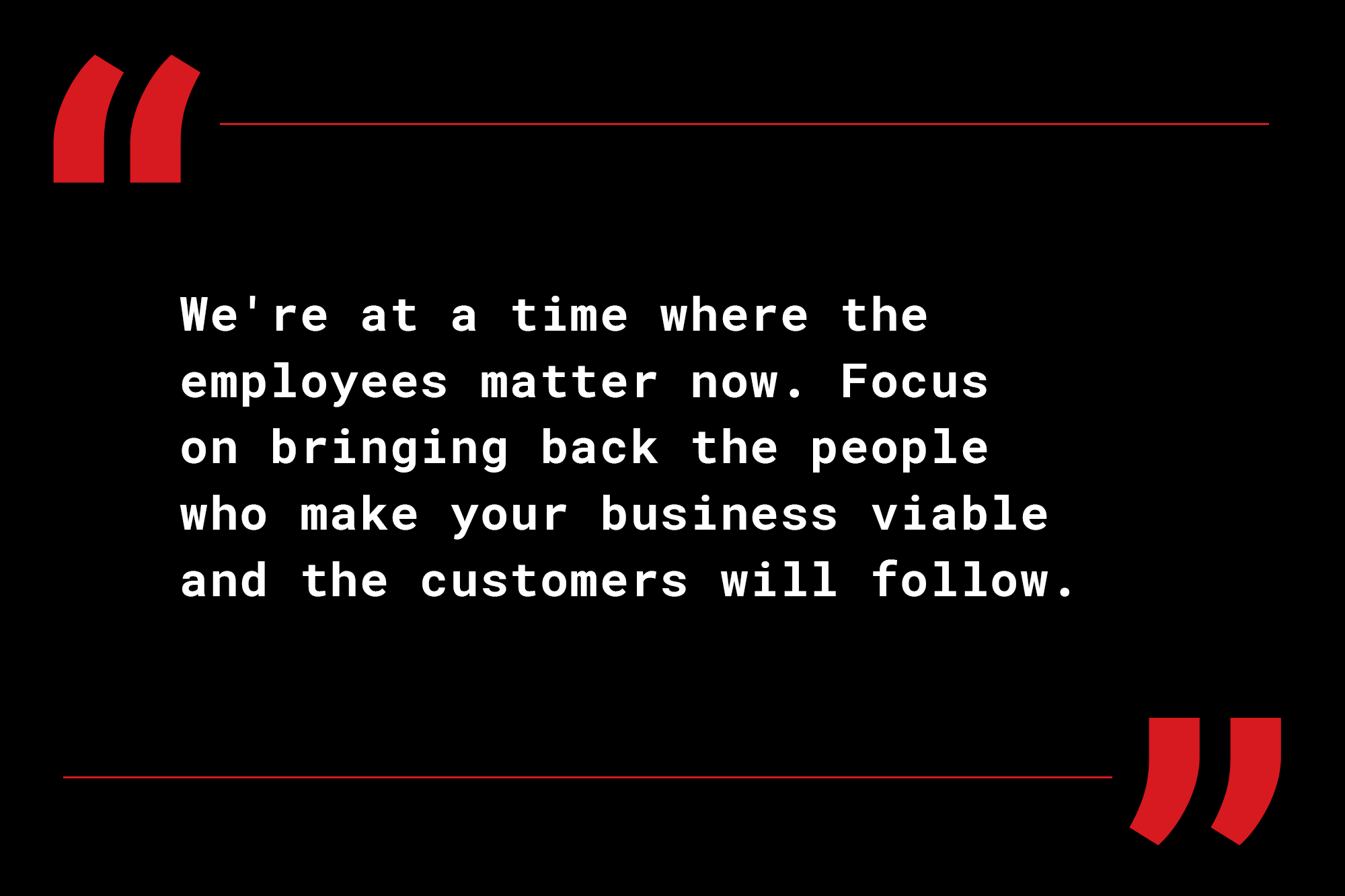Restaurateurs Weigh In On The Health Of Their Restaurant(s)
We’ve been talking to a lot of people over the past few weeks, maybe even longer, about the impact that the COVID-19 crisis has had on business. While GSP works with many different types of businesses, the negative impact COVID-19 has had on restaurants was the tip of the iceberg and has been particularly devastating. I have many friends in the restaurant business (I think we all do here at GSP) – some I’ve met professionally as a designer and photographer, while others I’ve met through countless interactions at a host stand or bar counter (which for a non-drinker is ironic, but there’s no better place to have a meal). I joke that two of my biggest expenses are my car and dining out. Going out to dinner is something that my wife and I just love to do, and while I’m hesitant to spend $100 repairing our water heater, spending that amount or more on a single meal seems to be effortless for me.
In this post I wanted to share some thoughts and perspectives from a handful of our (GSP and my) closest friends working in the business. I interviewed 10 restaurateurs and compiled some of their thoughts into the piece below.
***
I asked my panel of restaurateurs when they started realizing that there were changes coming to the restaurant. Dave Cagle, owner of The Automatic in Cambridge, noticed a slump starting in mid-February. As soon as COVID-19 cases started popping up in the area, all of the corporate events at his restaurant were canceled. Compared to last year, the last two weeks alone showed a decline of sales by 33%. And the week ending March 15th, sales had dropped 65%. He reminds me that, “…winter is always tough, and we would count on sales picking up this time of year to pull us out of the slump.”
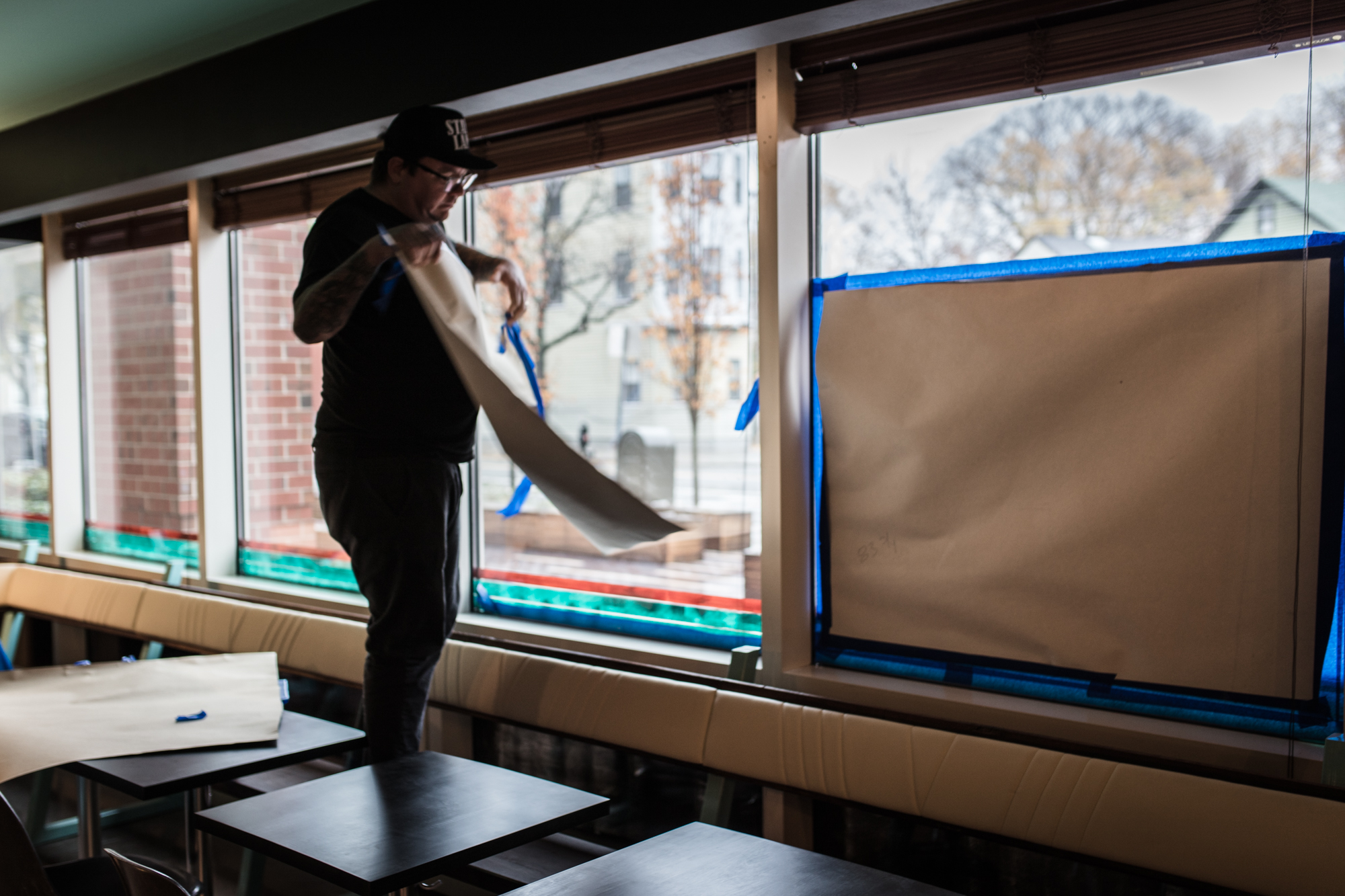
Liza Shirazi, co-owner of Revival Café, which was scheduled to open a Newbury Street location last week, really started to feel a slump on March 10th, when it became clear that minimizing exposure to others was essential. They stopped touching credit cards, having customers do their own swiping, but decided not to forego requiring signatures for payments, because that would mean no tips for staff.
It’s clear that there was already a steady decline at most restaurants leading up to Governor Baker’s decision to close restaurants to diners. Despite the damage it would do to their business, the people I spoke with fully approved of his decision. Some, like Heather Mojer, co-owner and operator at State Park, Mamaleh’s Deli, Café du Pays, closed hours before the mandate occurred, stating that the volume of business dropped dramatically the weekend before the ban, “…making it clear to us that restaurants were not somewhere people were interested to spend their time.” She added that her decision to close was fueled by, “the staff’s discomfort at interacting with the public.”
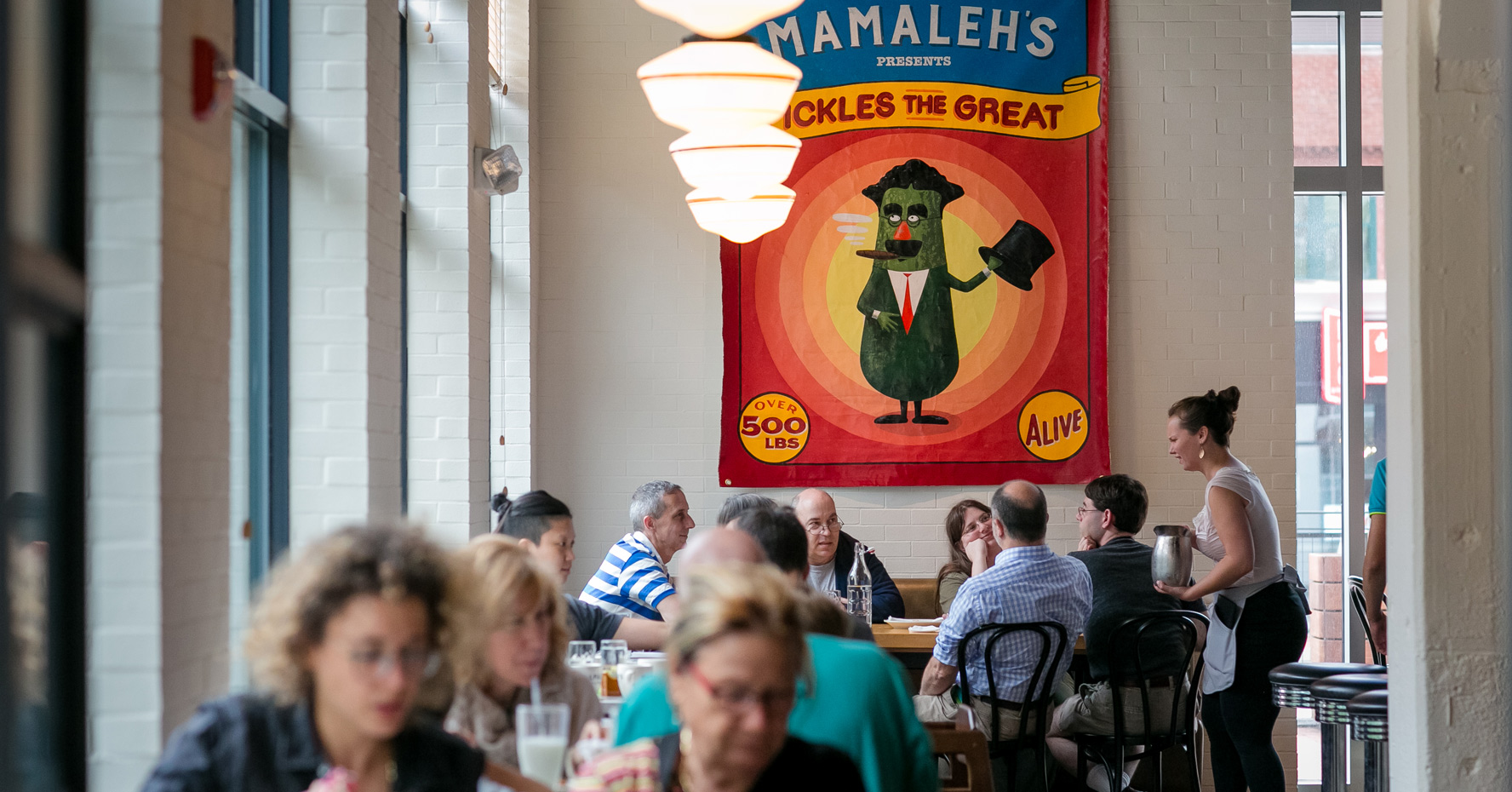
Eli Feldman, speaking for Branch Line, Eastern Standard, and Shy Bird, said Shy Bird’s business dropped from about 30% down in early March to 80-90% when the shutdown occurred. But he completely agreed with the decision to close for the sake of public safety, “…because many operators struggled with the tradeoff between trying to keep their people employed and safe.” For Feldman, and many others that we have spoken with, the closure offered clarity and relieved then of making a wildly difficult decision. An anonymous restaurateur in Cambridge reaffirms that, “The decision needed to be taken out of the hands of individual operators and made by the state, who presumably had better access to public health information regarding the virus.”
Tom Schlesinger-Guidelli, owner of Alcove, said Baker’s decision was right, although he wishes there was more assistance for making Business Interruption claims. He also would have liked permission to sell liquor to go. He mentioned that Alinea, a Michelin 3-star rated restaurant in Chicago, sold $6k worth of Margarita kits by March 18th. Schlesinger-Guidelli says selling alcohol kits to go would, “…dramatically change our ability to help people get jobs and the potential for us to pay some of our bills. I genuinely believe that would soften some of the economic curve.” Feldman agrees, and reiterated that selling alcohol is, “the primary engine for profitability,” and he believes it could be done responsibly and legally.
Recently, Rhode Island Governor, Gina Raimondo, signed an executive order allowing restaurants that hold a Class B liquor license to sell takeout beer and wine. That should be great news for Thomas Dennen, owner of Providence’s Bayberry Beer Hall, who says their establishment “lives and dies by our draft beers.” But the order, which states alcohol (up to 144 ounces), must be sold in their original, sealed containers, means that he’s unable to fill growlers and take advantage of his draft inventory. Not only would selling draft beer add needed revenue, he’s concerned that if the beer continues to sit stagnant in coolers, it will end up wasted, and he’ll be forced to reorder product to operate in the future.
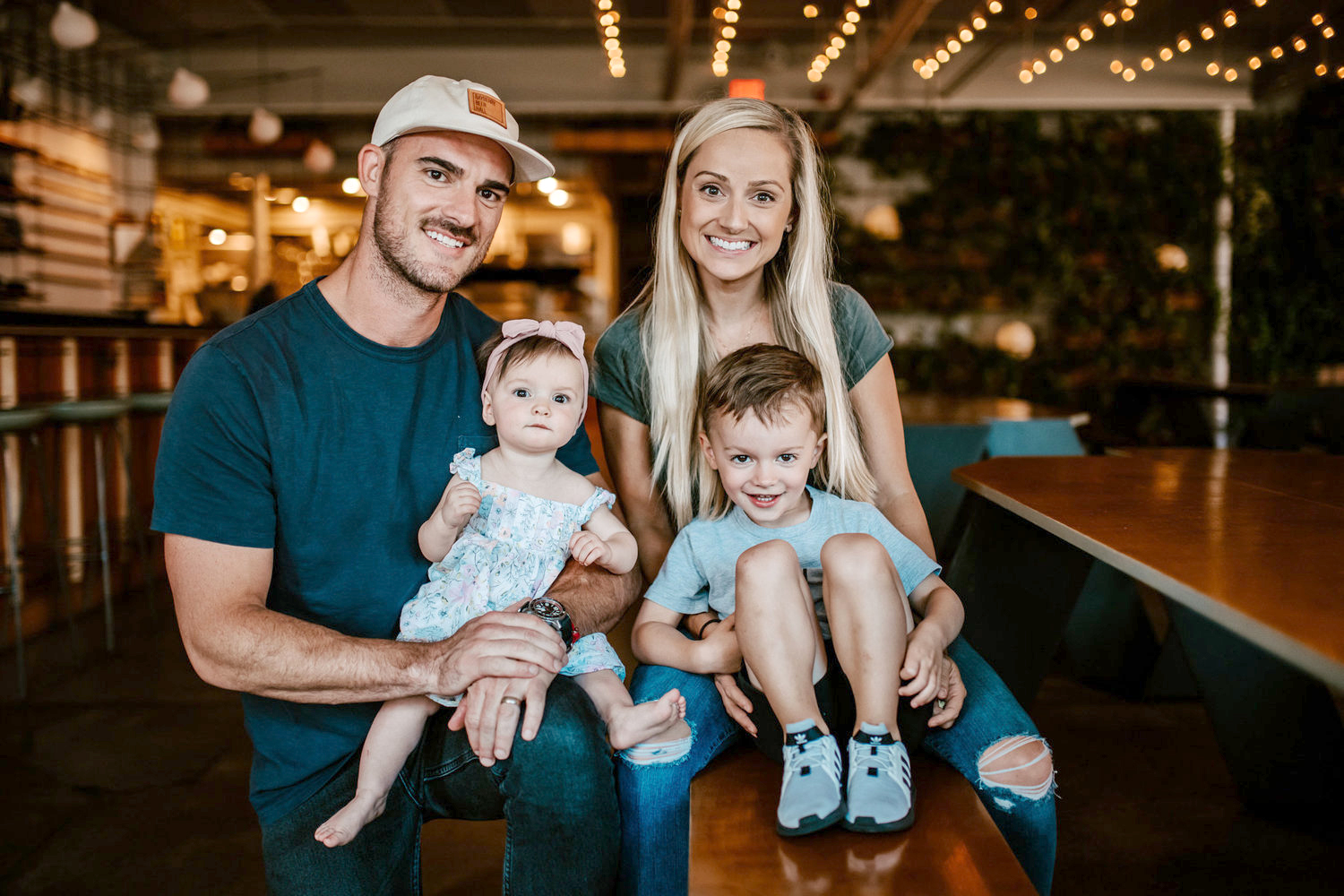
Last week, we proposed a liquor license buy back option to help restaurants recover cash and at the same time clean up our outdated and clumsy licensing laws. Let us know what you think about this idea by emailing community@graffito.com
How else can restaurants relieve some of the financial stress of the shutdown? I asked everyone if they had spoken to their landlords about rent abatements or deferals. Most of them have been in close contact and had positive things to say about their conversations. Heather and her partners have spoken to their landlords (they have two) and both agreed to defer their rent for April and will be in touch about moving forward. It seems like everyone I spoke with respects that the landlords also have financial obligations. Dennen said their landlord understands their situation, but reminds us that, “as a big developer and property manager in the city, they too also have steep fixed costs.”
Shirazi had a similar conversation with Revival Cafe landlords. She told me that the tone of these conversations was “mixed,” as all of the discussions varied based on their own economic stability. She noted that while there was incredible support and encouragement there was also a, “fear for loss of income, as they too rely on rent for their own economic stability and there was also some hesitancy and a delay to accept the magnitude of the situation at hand.” She stressed that because of times like these, it’s importance to find landlords that understand the business and share mutual respect for each other. “I have learned how important these relationships are over the years, so we have been very careful in choosing our locations for this reason.”

If landlords are understanding of the financial issues retail businesses are having, but also need rent for their own survival, what about getting a loan? I was curious if anyone had made any attempts to find a loan or other sources of financing during the COVID-19 crisis. Almost everyone had considered taking on some sort of debt in order to weather the storm, even though it’s not ideal. In order to take advantage of the $10 million Small Business Recovery Loan Fund that the city of Boston is offering, businesses must have less than 50 full and part time employees. But what about Alcove, still very much considered a small business, but with a staff of roughly 70 people? Schlesinger-Guidelli says it puts him in an uncomfortable position, grouped with companies that employ up to 500 people. To him, its evidence that the restaurant industry is misunderstood by legislators, and as a result, leaders, “continually try to put a square peg through a round hole instead of actually addressing the specific needs of our community.”
The solution? Schlesinger-Guidelli suggests a bailout and the closure of non-essential businesses. By doing so, it’s more likely to trigger Business Interruption Insurance. While skeptical it would ever happen, going one step further, he says, “Instead of trying to prop up each individual industry, and thus missing some, prop up the insurance industry as it protects everyone.” Feldman, agrees that that government will need to step in, and wants immediate relief in a few forms, including a meals and payroll tax holiday. In fact, you’d be hard pressed to find an argument against deferments, but he acknowledges that a deferment doesn’t necessarily help long-term because, “we’d have to hold the cash we so badly need because this is not an industry where there’s often just 15-20K extra lying around.”
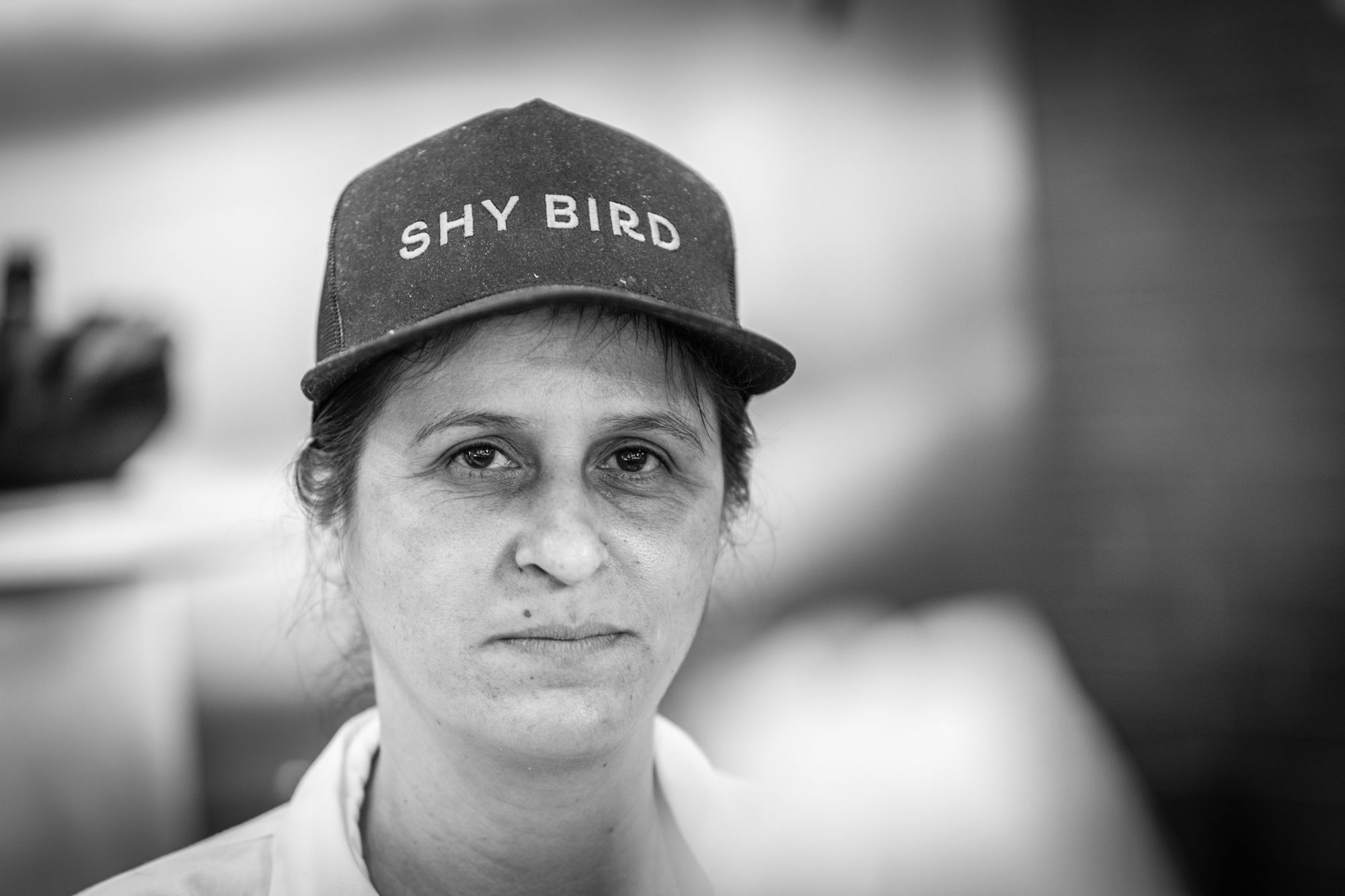
Ok, so when this is over, what will we have we learned as a community about the restaurant business during this pandemic crisis? Our anonymous Cambridge restaurateur put it very simply, stating that the last few weeks have, “revealed the precarious structure of restaurants as we know them. They are the business equivalent of living paycheck to paycheck.” Shirazi agrees, reiterating that her industry has proven to be fragile, and that “whatever security people felt, that will be gone.” She sees how important it will be to rely on each other, “for comfort, sanity, community, income…Restaurants are embedded in everything. We need them. They need us.”
It’s clear that whatever happens, opening back up to the public will present a ton of challenges. First, there’s the usual operational issues, as our anonymous national restaurant owner says, “It’s basically like opening a new restaurant.” Food inventories will have to be rebuilt and equipment will need to be serviced after a long pause. There will be bills due, and owners will need to figure out which ones get paid first, assuming all of the other investments in the business can be made. With the complete loss of private events business, some are concerned about their ability to make money at all, at least in the near term. Assuming that people aren’t afraid to book events, our anonymous Cambridge restaurant owner estimates that it could take a full year for this part of their business to return. Cagle adds that missing patio season could be a killer. Profits from April through July typically carry The Automatic for the entire year. Without that boost, recovery seems impossible.
Rachel Miller Munzer, co-owner and operator at State Park, Mamaleh’s Deli, and Café du Pays acknowledges that, “In order to survive in the long term there will be deep discussions about what a restaurant is, what our purpose will be, and if the pivoting that will need to take place will be able to sustain us financially.”
And, of course, re-staffing is a concern. When things begin to normalize, it’s not a given that the staff will return. Mojer is concerned that, “the job market with be highly competitive for job seekers and could raise the rates for hourly and salaried workers ultimately increasing our operating expenses in a lump sum.” Schlesinger-Guidelli points out that even if the same staff returns, retraining a team that hasn’t worked in the restaurant will slow things down.

But the staff remains on the top of mind for all of the business owners we talk to, in this industry or any other. After all, everything that’s going on in the world right now is about the health and safety of the humans that inhabit it.
Miller Munzer and her partners are working to make sure their employees are being taken care of, “from being assisted with Unemployment claims, to finding other financial support and resources in general to help navigate this time.” Focused on people, they also want to make sure their vendors are being taken care of as much as possible, noting that they work with numerous small purveyors, so they hope to be able to keep paying those bills as long as possible.
Dennen hopes that the world begins to recognize that the restaurant industry is selfless and giving, and that while many businesses are requiring workers stay at home, “our employees are raising their hands to be on the front lines fighting this thing and providing our local community a hot meal and a short break from reality.” Feldman thinks this is already happening, and that we’re already seeing how much people love restaurants, through Gift Certificate purchases, Venmo relief, and by placing large takeout and delivery orders. Our anonymous national restaurant owner told me, “We’re at a time where the employees matter now. Focus on bringing back the people who make your business viable back and the customers will follow.”
And this could be an opportunity to fix working conditions for employees, especially part-timers. For example, earned sick time, which is considered a worker’s right, is an important benefit that allows people to stay away from work when they are ill. Mojer educates me, “Most workers in Massachusetts have the right to earn and use up to 40 hours of job-protected sick time per year to take care of themselves and certain family members. The way sick time works in the state is that workers earn at least one hour of earned sick leave for every 30 hours worked. Since it was early March when this all started shaking out in Massachusetts, some part-time people may not have accrued enough time credits to have sufficient sick pay.” She continues, “I think our society penalizes part-time workers in so many different ways and it needs to be addressed with more equitable federal, state, and employer-based policies.”
Schlesinger-Guidelli also has high hopes for the industry moving forward. In addition to thinking about a rainy-day fund for Alcove’s staff, he wants to figure out how to appropriately compensate them, which may require a new business model. “My heart wants this to be the end of tipping and the creation of a true living wage for our teams.” He continues, “I think the restaurant community spends so much of its time nurturing its guests and making sure that others are taken care for…but we need to look inward a bit more. I do not want to be in the position where I have to lay off 75 people ever again.”
Relevant Resources:
Running a Food Business in the face of COVID-19: Comprehensive Resource Guide provided by CommonWealth Kitchen.
Small Business Recovery Loan Fund: The $10 million Fund provides emergency capital to Massachusetts-based businesses with under 50 full- and part-time employees
Massachusetts Dept. of Unemployment Assistance: Apply for unemployment benefits
Small Business Assistance for COVID-19: Information about the SBA’s Economic Injury Disaster Loan Program
US Small Business Administration: Guide from the U.S. Small Business Administration (SBA) for Businesses and Employers to Plan/Respond to COVID-19
Boston Area Restaurant Changes (Ongoing List): Eater Boston’s ongoing tracking of closures, service changes, fundraising, and more in the wake of COVID-19
Disaster Assistance: The SBA provides low-interest disaster loans to help businesses and homeowners recover from declared disasters.
Preventing The Spread Of Coronavirus in Food Service Establishments
General Hygiene, Social Distancing and Food Waste Guidance for Take-Out Restaurants and Food Markets
- Alcove
- Bayberry Beer Hall
- Branch Line
- Cafe du Pays
- Charlie Baker
- COVID-19
- Dave Cage
- Eastern Standard
- Eli Feldman
- Gina Raimondo
- Heather Mojer
- Liza Shirazi
- Mamaleh's
- Rachel Miller Munzer
- Restaurants
- Revival Cafe
- Shy Bird
- State Park
- The Automatic
- Thomas Dennen
- Tom Schlesinger-Guidelli
